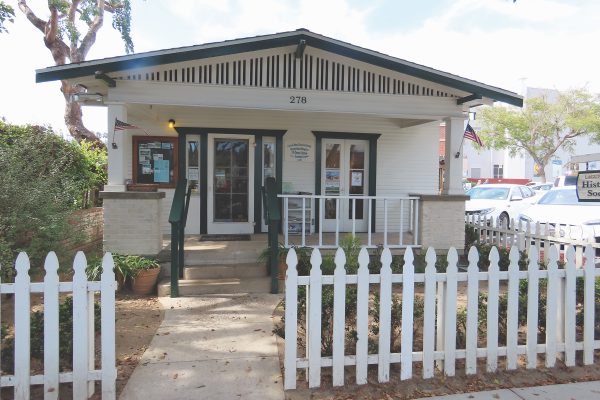
By Megan Miller, Special to the Independent
The California Coastal Commission is set to hear Laguna Beach’s new historic preservation law next Thursday, spurring action from opponents who fear this change could negatively impact the City’s historic charm.
Advocates for the law have called for years to see a revision to the City’s original preservation plan which would allow greater freedom for property owners to remodel historic homes. The law was passed by the Laguna Beach City Council in August 2020 on a 4-1 vote with Councilmember Toni Iseman dissenting.
For the law to go into effect, however, it must be certified by the Commission at the Feb. 10 meeting.
The Laguna Beach Historic Preservation Coalition and Village Laguna have both implored the Commission to consider denying the changes. The Laguna Beach Historic Preservation Coalition and Village Laguna have both implored the Commission to consider denying the changes. The opponents’ concern largely stems from the inclusion of “owner consent,” which would allow property owners the choice of registering their properties as a local historic resource.
“No other aspect of the environment is treated in this way: owners do not get to decide whether their property is an environmentally sensitive area, or whether it is located on a bluff,” said Catherine Jurca, president of the Laguna Beach Historic Preservation Coalition, in a letter to the Commission. “Historic status is a matter of expert identification and not owner preference.”
The City sought to make historic status voluntary to better balance preservation with private property rights, Mayor Sue Kempf wrote in an opinion column published Friday.
Laguna Beach is also aiming to remove references to its Historic Inventory—a list of some 700 pre-war homes that were surveyed in 1981 to determine eligibility for the City’s Historic Register—which has not been updated in five years.
About 325 properties are currently recognized by the Register for reflecting the historic character of Laguna Beach. Of those, 250 were preemptively surveyed through the Inventory.
The properties were voluntarily added to the Register by the owners, who benefit from preserving the historic significance with tax breaks, parking reductions, and other financial incentives.
The Inventory’s redaction from city law could threaten other sites which have historical value, but have not formally been recognized by the City Register, Jurca said.
“The revisions will irreparably damage Laguna’s historic fabric and ability to tell its story as a unique historic California beach town,” Jurca said.
Removing the Inventory could also mean the City no longer has to continually survey whether properties over 45 years old qualify as local historical resources, Jurca said.
However, Kempf said that the City remains obliged to protect properties listed on the California Register of Historic Places, the National Register of Historic Places, and the City’s own register.
“Bottom line: if the City is required to treat a property or structure as historic… it will do so,” Kempf said.
The updated historic preservation program still affords strong protection of Laguna Beach’s historic character and charm, Kempf said, since historic resources including objects of historic significance are protected under the California Environmental Quality Act.
Ann Christoph, a board member of Village Laguna, said in the organization’s Jan. 24 meeting that she fears the Coastal Commission is being misled by the City.
Christoph said the Commission based its report on a 2017 FAQ document provided by Laguna Beach, yet the City only “changed course” to include the owner consent provision in 2018.
“When you read the report that they [Coastal Commission] have done, they have echoed our concerns about how important it is to preserve the historic character and the village character. They agree with all that. The problem is, they don’t understand that it won’t happen with the way the City is approaching it,” Christoph said.
The California Coastal Commission will meet Feb. 10 to hear the historic preservation law. If the state panel approves the document with coastal staffers’ recommended modifications, the City Council will have six months to reconcile its adopted version before the law can go into effect.




